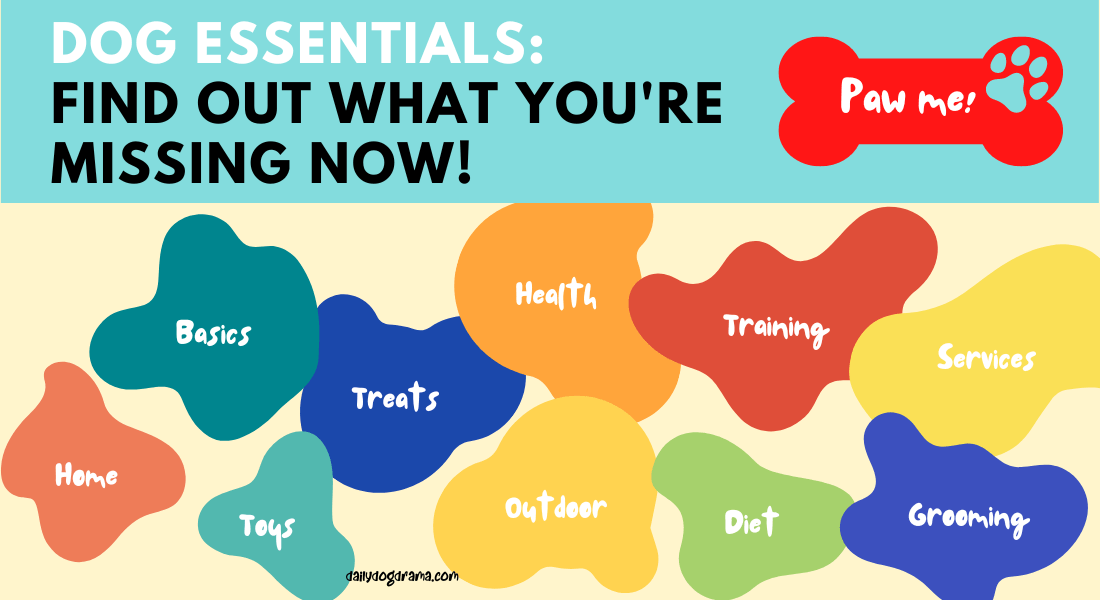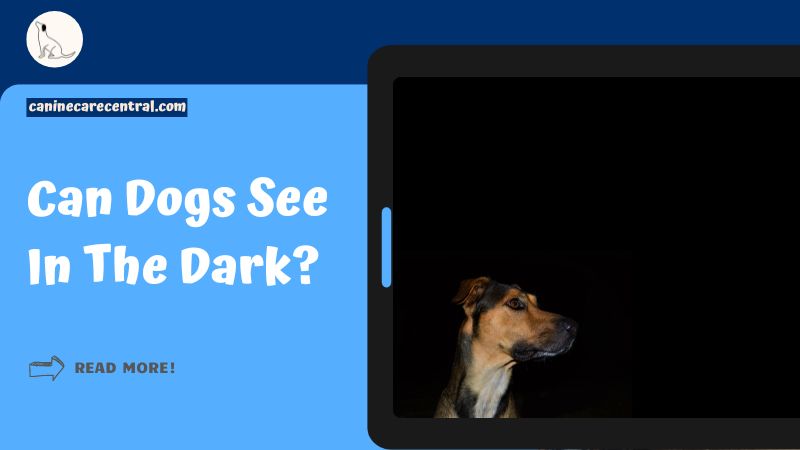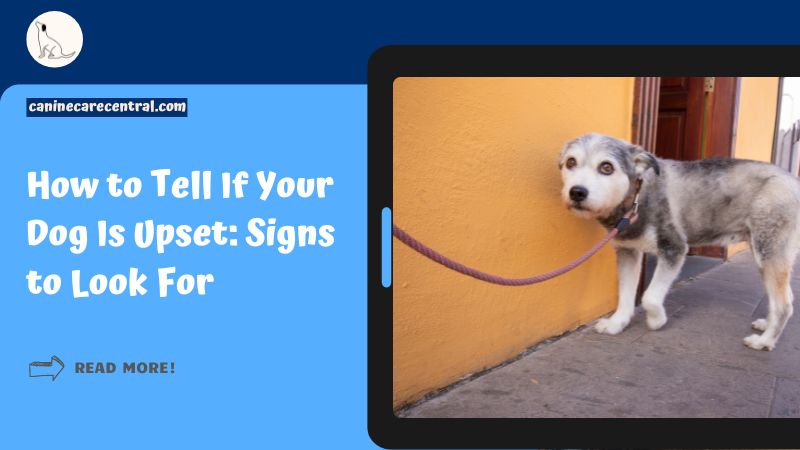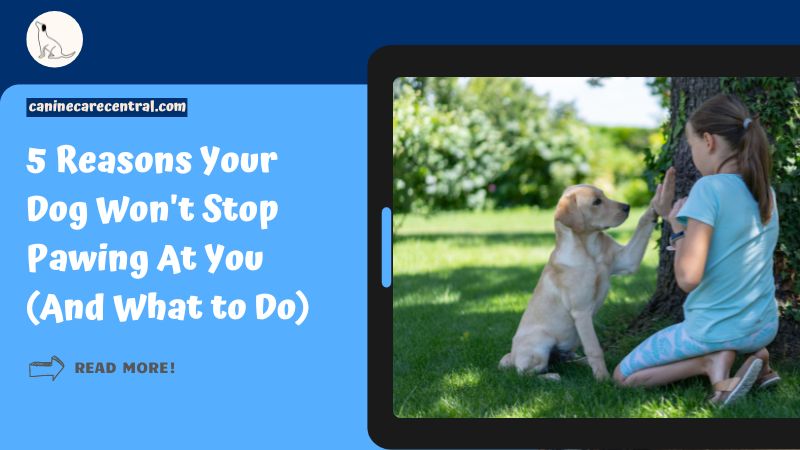Do you know what DOG ESSENTIALS you are missing out? Find out now!
Dog Spits Out Food? What’s Going On?
Zack Keithy, our author, is a certified veterinarian technician (UC Blue Ash) for over 6 years (contact him here). The articles written here are based on his expertise and experience, combined with a review by our expert vet reviewers including Dr M. Tarantino. Learn more about us here.
I know how frustrating it can be when your dog puts food in its mouth then spits it out.
You go to the store, buy a bag of dog food that you think he’ll love, then come home and find that he’s just not interested.
It’s even worse when you’ve spent way too much money on an expensive brand of dog food that you thought would be perfect for your pup!
If this sounds like something you’ve experienced (or are experiencing), don’t worry: there are answers!
Medical Questions? Talk to a Veterinarian 24/7.
Connect one-on-one with a licensed vet who will answer your questions in minutes.
*Article may contain affiliate links to retailers like Amazon and Chewy. Learn more on our disclosure page.
- Dog Spits Out Food? What's Going On?
- Why Does My Dog Put the Food in His Mouth and Then Spit It Back Out?
- Tips on How You Can Get Your Dog to Eat Well
- What to Do if All Else Fails?
- Frequently Asked Questions (FAQs)
- Do Dogs Get Bored of the Same Food?
- Can Dogs Start to Dislike Their Food?
- Why Does My Dog All of a Sudden Not Like His Food?
- Why is My Dog Not Eating His Food But Will Eat Treats
- Why Does My Dog Drop His Food on the Floor Before He Eats It?
- Why Does My Dog Scatter His Food?
- How Long Will a Picky Dog Go Without Eating?
- Why does my dog spit out his food, then eat it?
- In Conclusion: Dog Puts Food in Its Mouth Then Spits It Out
Why Does My Dog Put the Food in His Mouth and Then Spit It Back Out?
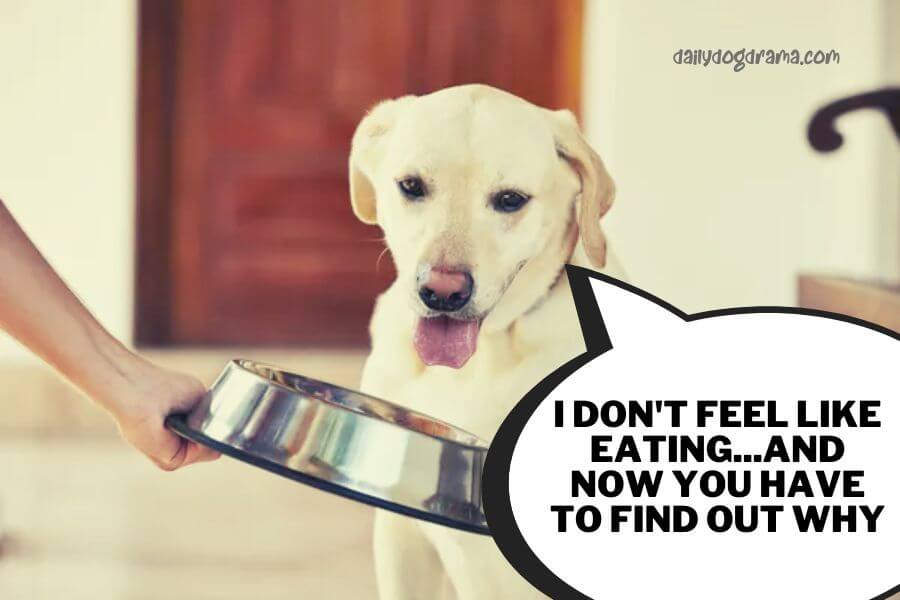
If your dog spits out food after putting it in its mouth, there are several possible explanations.
It could be that it is not interested in that particular food, so it may just decide not to eat it.
Some dogs will only eat what they want and will ignore anything else presented to them.
Sometimes dogs are simply full from eating other things so they won’t bother with a less appetizing dish.
And other times, it looks like your dog wants to eat but spits out food instead.
Let’s take the guesswork out and look at the possible reasons why your dog might put food in his mouth and spit it out.
1. Something is wrong with the food
Generally, you would not encounter such an issue, but there are times when the food might have gone bad and you did not notice it, potentially leading to food poisoning.
All store-bought or home-cooked food has a shelf life, and when they expire or turns bad, your dog is not going to want to eat it.
In fact, you should always be checking on the validity of the food you feed your dog so that it will not get into any unwanted issues.
Doggy says, consider reading this too: Shih Tzu With Underbite [In-Depth Guide]
2. Fear or anxiety issues
Is your dog going through a stressful period recently or maybe it has just returned from boarding? Or it could be that it lost a loved one? Is your dog looking at your when it eats?
Dogs are somewhat similar to humans in this respect and they might lose their appetite when dealing with such issues.
Any stimuli or loud noise can easily frighten it during this time and it is important that you give it some time to get over the situation and do not pressure them into eating food right away.
They would need lots of TLC from you too.
Doggy says, you might like this too: Dog Bobbing Head Around Food Bowl [Explained]
3. Taste of the food
We all love yummy food, and I’m pretty sure our dogs do too.
Are you preparing your own food for your dog? Bland foods might be a bit of a turn-off for dogs, so do keep that in mind.
This is especially true if you’ve changed brands or flavors recently, so give him some time to get used to it.
Or maybe check out these homemade dog food recipes to up your game.
4. Temperature of the food
It may also spit out food if it’s too hot or cold.
It’s important to let your dog consume food at room temperature, so if you’ve recently cooked up a fresh batch of food, let it sit out for a while before feeding him.
If he still doesn’t want any after that time has passed, try warming it up in the microwave for a few seconds before serving.
Doggy says, you might like this too: Dog Sticking Bum in Air [7 Reasons]
5. Texture of the food
You may also have noticed that your pup doesn’t like certain types of food because they’re too hard or crunchy.
If this is the case, try switching brands again until you find one that’s softer and easier for him to chew. Adding water will help too.
This will also reduce the chances of him choking on large pieces.
6. Not hungry
Your dog might simply not be hungry right now.
Try waiting 10-15 minutes before offering him another bite of food, or consider feeding him at a different time of day instead.
7. Picky eater
Some dogs are just picky eaters and some flavors they like better than others.
Try offering it a variety of different brands and types of food until you find one he enjoys eating.
Whenever possible, try to feed him something that’s similar in texture and consistency, and try not to change this up too often.
8. Medical condition
Your dog may have a medical condition (for example, parvo or giardia) that makes it lose appetite, a dental issue (especially dogs with underbite) that is causing it pain when eating, or it’s trying to tell you that something isn’t right with him physically by spitting out its food.
If your dog has been having an upset stomach, throwing up, or having diarrhea for more than 24 hours, contact your veterinarian immediately as this could be an indication that something serious or even life-threatening is going on with his health.
There are also times when your puppy could be sleeping a lot and not eating much, so it’s worth investigating deeper.
Hey there, sorry to interrupt but I wanted to tell you about an online vet service I’ve been using for years.
An in-person visit with one is great, but it’s not always an option.
Now, thanks to technology, you can speak to one without leaving your home.
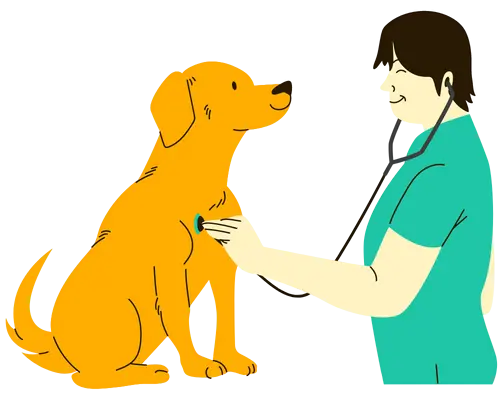
Got something to ask a vet?
Talk to one anytime, 24/7.
* Don’t use this service for emergencies.
Alternatively, a vet can come out to you instead (exclusive to our readers: use THEVETS15 for 15% off).
SCHEDULE AN APPOINTMENT HEREThank you. The rest of the article continues below.
9. Mating period
Dogs may eat lesser during mating season or they could lose interest in food altogether.
This is because their bodies are focused on reproduction right now and all that hormonal change can affect their appetite.
Changes in female dogs are more obvious and you can tell they are in heat when their vulva swells, or you see discharge or bleeding.
If this happens, you should still try to feed your dog enough calories so that it has enough nutrition and the energy to do what it needs to do.
The breeding period is a stressful time for your dog and it can become anxious, so that could be another reason why it’s not eating as much.
If this happens, try to keep its environment quiet and calm so that it doesn’t feel threatened or stressed out.
10. Food allergies
Could your dog have developed a food allergy in recent times?
Some common telltale signs include itching, skin rashes, ear infections, gastrointestinal issues (vomiting, diarrhea), and chronic licking or chewing.
Might wanna talk to a vet to confirm your suspicions.
Doggy says, consider reading this too: Why Does My Dog Lick and Hump Me? 7 Solutions
Tips on How You Can Get Your Dog to Eat Well
I totally get it. If I see my dog spitting out kibble, I would be really frustrated too.
Although getting your dog to eat well can be a challenge, it’s important to have the right tools for the job.
Here are some tips on how you can get your dog to eat well:
- Make sure that all of their food is fresh and clean. If you’re mixing their food with something from the fridge, heat it up first before giving it to your dog. Doing so often enhances the smell which makes it appealing to your dog. I highly recommend checking out Ollie dog food.
- If your dog is picky about what they eat, try training them with treats or making them sit before they get their meal. This will help them learn that good behavior leads to good things like food!
- Try hiding some treats in their food bowl or adding them into the mix when making something like homemade dog food; this will encourage them to eat all of it instead of just picking out the best bits first!
- Try mixing their food with water or adding some broth to it. This can make it taste better and more appealing to them.
- If your dog’s food is too dry, it may not like the way it feels in its mouth. Try mixing some water in with it to make it wetter and more palatable.
- Pretending that it is your food may also help. Serve their food on a plate and act like you are eating it. Dogs sometimes copy what their owners do so this may encourage them to try the food that they see you eating.
What to Do if All Else Fails?
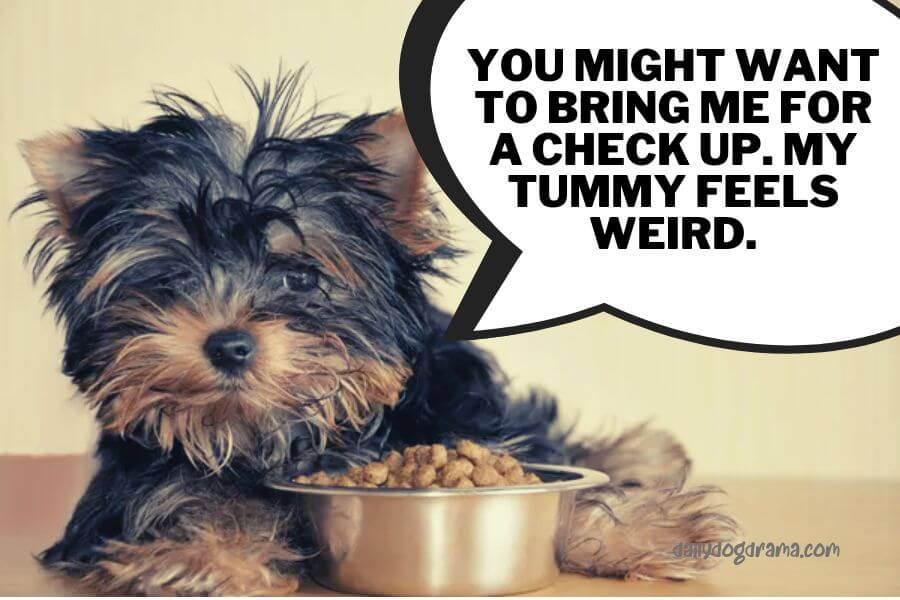
If you have tried all of the above and your dog still will not eat its food, then it may be time to take it to the vet.
There could be an underlying medical condition that is causing them not to want to eat such as an infection or illness, so it is important to get your dog checked out.
They should also be able to advise you on the number of calories they should get per day and what type of food would be best for their size/weight.
If there is nothing wrong with them physically, then it may just be picky eating habits and you will have to try again later on.
Frequently Asked Questions (FAQs)
Do Dogs Get Bored of the Same Food?
The answer is no, they do not. Dogs have a lesser sense of taste than humans, and their sense of smell is much stronger. This means that they are not as picky about what they eat. They also have a shorter digestive tract than humans, which means they can eat less often without getting sick or feeling full.
Can Dogs Start to Dislike Their Food?
Yes. Dogs can start to dislike their food if it is made differently than usual, or if it is not of the same quality as it has been in the past. In addition, dogs can start to dislike their food if they are not getting enough of it!
Why Does My Dog All of a Sudden Not Like His Food?
Changes in their environment, stress, an adverse reaction to drugs, and nausea can cause dogs to stop eating. If your dog suddenly doesn’t like his food, it could be due to dental problems, pain, or internal obstructions. Or your dog might just be fussy at the food you’re offering them, but it’s critical that you confirm this with your vet and rule out other possibilities.
Why is My Dog Not Eating His Food But Will Eat Treats
If your dog is turning up their nose at dinner but happily gobbling treats and scraps off the table, you may want to consider if they’re picking unhealthy foods over its own food. However, if other symptoms of illness are present as well (such as vomiting or diarrhea) then medical reasons could be behind this change in appetite.
Why Does My Dog Drop His Food on the Floor Before He Eats It?
Dogs may drop their food on the floor before eating it due to instinctual behaviors or personal preferences. It could be an innate behavior related to their wild ancestors who would bury excess food for later consumption or a habit developed for various reasons, such as a desire for a cleaner eating area or to enhance the texture or taste of the food.
Why Does My Dog Scatter His Food?
Scattering is a common behavior in dogs, and it’s especially common in puppies. It has to do with their natural instinct to hide the food for later so that no other animals can get it. Scattering is not a sign of any problems, and it will likely subside over time as the dog grows and matures.
How Long Will a Picky Dog Go Without Eating?
The answer depends on the dog, but in general, most dogs can go for at least 3 to 4 days without food. Some dogs have been known to go even longer. The key is making sure that your pet has access to fresh water at all times and is not suffering from dehydration or other health issues. If you notice any unusual signs like vomiting or diarrhea, consult with your veterinarian immediately.
Why does my dog spit out his food, then eat it?
Dogs may spit out their food before eating it due to various reasons such as trying to break down the food into smaller, more manageable pieces, especially if it’s large or dry. Some dogs may also have this behavior as a way to explore or savor the taste and texture of the food.
In Conclusion: Dog Puts Food in Its Mouth Then Spits It Out
I know it’s a sucky feeling when your dog spits out food, and worse if it doesn’t continue eating.
This can be a very frustrating and confusing experience for dog parents, so I hope the tips above managed to help you out.
Your number one concern should be to look out for potential sickness which needs medical attention quickly.
Most dogs will go back to eating pretty soon so you should not have any long-term worries (just don’t listen to advice like spitting in a dog’s mouth!)
It can be hard to understand dog behavior, which is why we have a lot of other useful articles such as why dogs sleep with their bum facing you, how to stop a dog from peeing on the deck, or curious why your puppy is humping at 12 weeks, and much more.
Join our newsletter as we send you updated articles each week to help you be the best dog parent!

